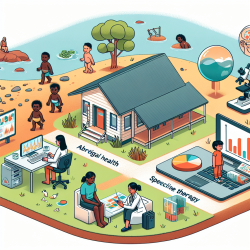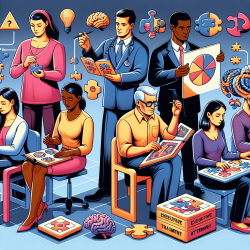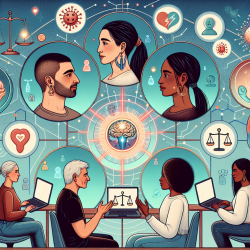Revolutionizing Alzheimer's Care with Remote Monitoring Technologies
In the rapidly evolving landscape of healthcare technology, the RADAR-AD study stands out as a beacon of innovation. This groundbreaking research explores the use of Remote Monitoring Technologies (RMTs) to track functional decline in Alzheimer's Disease (AD) patients more accurately and continuously than traditional methods. For practitioners in the field, understanding and integrating these technologies could significantly enhance therapeutic outcomes and patient care.
The Promise of Remote Monitoring Technologies
Traditionally, the functional decline in Alzheimer's patients has been assessed through periodic clinical evaluations, often relying on subjective caregiver reports. These methods, while useful, offer only a snapshot of the patient's condition and are prone to biases. The RADAR-AD study proposes a shift to RMTs, such as smartphone applications, wearables, and home-based sensors, which provide continuous, objective data in real-world settings.
Key Findings from the RADAR-AD Study
The RADAR-AD study, conducted across 13 European countries, involves participants at various stages of Alzheimer's, from preclinical to moderate. The study utilizes an array of RMTs, including:
- Wearables: Devices like Fitbit and Axivity track physical activity, sleep patterns, and circadian rhythms.
- Smartphone Applications: Apps such as Mezurio and Altoida MD provide cognitive assessments and track daily activities.
- Home-Based Sensors: Fixed sensors monitor daily living activities, offering insights into the patient's functional capabilities.
These technologies allow for a more nuanced understanding of the patient's condition, enabling practitioners to tailor interventions more effectively.
Implications for Practitioners
For practitioners, the integration of RMTs into therapeutic practices offers several advantages:
- Enhanced Monitoring: Continuous data collection provides a comprehensive view of the patient's functional status, allowing for timely adjustments to care plans.
- Objective Data: RMTs reduce reliance on subjective reports, providing objective, quantifiable data that can enhance clinical decision-making.
- Patient Engagement: Technologies like smartphone apps can increase patient engagement and adherence to therapy, as they often include interactive and gamified elements.
By adopting these technologies, practitioners can not only improve the accuracy of their assessments but also enhance the overall quality of care provided to Alzheimer's patients.
Encouraging Further Research
While the RADAR-AD study provides a solid foundation, it also highlights the need for further research into the application of RMTs in Alzheimer's care. Practitioners are encouraged to explore these technologies, conduct their own studies, and contribute to the growing body of knowledge in this field.
To read the original research paper, please follow this link: Remote monitoring technologies in Alzheimer’s disease: design of the RADAR-AD study.










